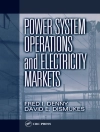In thermodynamics, the exergy of a system is the maximum work possible during a process that brings the system into equilibrium with a heat reservoir. When the surroundings are the reservoir, exergy is the potential of a system to cause a change as it achieves equilibrium with its environment. After the system and surroundings reach equilibrium, the exergy is zero. In contrast, the hydrogen economy is a proposal for the distribution of energy by using hydrogen. Hydrogen gives off energy when it is combined with oxygen, but the hydrogen itself has to first be produced, which requires more energy than is released when it is used as a fuel. Therefore to use hydrogen as a fuel, it first has to be generated by electrolysis of water or another method. A reduction in carbon dioxide emission would only be achieved if the energy used to split the water is obtained from non carbon-based sources. This new book gathers the latest research from around the globe in the study of exergy, hydrogen energy and hydropower. Some topics discussed are the sustainability assessment of hydroelectricity, using exergy to allocate carbon dioxide and other emissions for cogeneration systems, ultra-pure hydrogen production in membrane reactors and exergetic evaluation of thermochemical biomass conversion processes.
Arthur Calvet & Gaston Pelissier
Handbook of Exergy, Hydrogen Energy and Hydropower Research [PDF ebook]
Handbook of Exergy, Hydrogen Energy and Hydropower Research [PDF ebook]
Mua cuốn sách điện tử này và nhận thêm 1 cuốn MIỄN PHÍ!
định dạng PDF ● Trang 501 ● ISBN 9781617284304 ● Biên tập viên Arthur Calvet & Gaston Pelissier ● Nhà xuất bản Nova Science Publishers ● Được phát hành 2016 ● Có thể tải xuống 3 lần ● Tiền tệ EUR ● TÔI 7228487 ● Sao chép bảo vệ Adobe DRM
Yêu cầu trình đọc ebook có khả năng DRM












